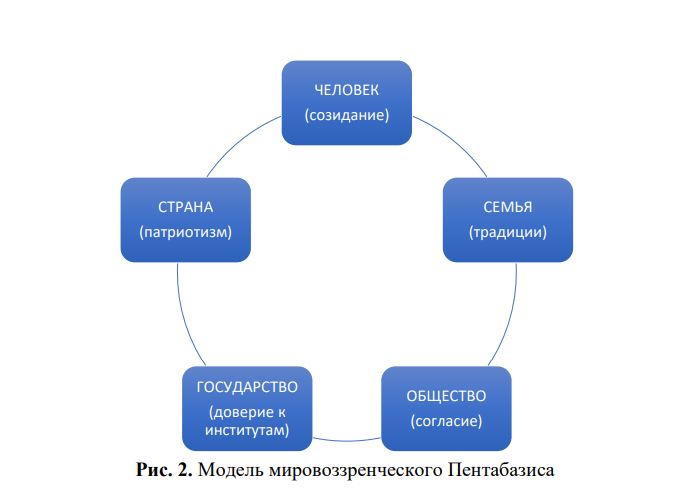Kremlin decides to create "nationwide code" and image of Russia’s future

Alexander Kharichev, Head of the Department for Supporting the Activity of the State Council at the Russian presidential administration, and three other pro-government politicians have published an academic paper on the common values that could unite Russians and an image of Russia’s future.
Source: the article, Perception of the Basic Values, Factors and Structure of Russia’s Social and Historical Development (based on research materials and testing); Kremlin-aligned news outlet Kommersant
Details: Kharichev has overseen many election campaigns in recent years. His co-contributors were Andrey Shutov, Dean of the Political Science Faculty at Moscow State University, Andrey Poloskin, Head of the Department for Interaction with Regions at Rosatom [the Russian state nuclear energy corporation – ed.], and Ekaterina Sokolova, Deputy Executive Director for Strategy and Forecasting of the Social Research Expert Institute.
The article, entitled Perception of the Basic Values, Factors and Structure of Russia’s Social and Historical Development (based on research materials and testing), was published in the Journal of Political Studies in October; it was based on research conducted in spring.
70 people took part in focus groups and brainstorming sessions from 4 March to 20 May 2022. They were students from Moscow State University and the Higher School of Economics, as well as lecturers attending a conference in the occupied city of Sevastopol. They were asked the following questions: what is Russian statehood; what will the country look like in 10 years’ time; what future do Russians have; what can we offer the world and the country; and "how can we make the future happen?"
Kharichev and his colleagues believe that the results of this research will enable them to more effectively develop "national strategies for forming civil society, based on a common understanding of the basic constructive values that are most in accord with the personal worldview of a particular citizen."
They also see the prospect of creating "a full integral nationwide code" formed of intuitive archetypes and images that enhance the traditional strong points of Russian society and that can be described as "a hierarchical system of interconnected images and meanings".
Following the discussions, the researchers have established a five-level "pentabasis": individual - family - society - state - country. Dominant values have been defined for each level. They are patriotism for the country, trust in the authorities for the state, the people of Russia for the family, harmony for society, and creativity for the individual.
As the article states, it has been argued that European society is individualistic while Russians have "family + family with friends" as their main value. The authors propose a dominant value: the people of the Russian Federation are "a family of families".
The following concepts have been suggested, following the discussions:
- Metaphorical images of Russia’s future: "The state is a novel" (it is being written collectively by writer citizens and has alternative endings), "Russia’s future is the second volume of Dead Souls that Gogol [its author] burned", "The state is a Firebird".
- Modern concepts of the state: "The Homeland-Mother with a laser sword" (a source of pride for the Russian spirit that points the way to the future), "A state of friendly service".
- Messianic concepts of the state of the future: "Russia as a prophet" (which resists the Grand Inquisitor [in Dostoyevsky’s The Brothers Karamazov]), "Russia is the world’s guardian", "A guardian of kindness".
- Idealistic concepts of the state of the future: "A wondrous city" (inclusion, co-existence, acceptance of others as equals, but "not to be mistaken for tolerance in any way"), "A pie" (that harmoniously combines different ingredients).
- Mechanistic concepts of the state of the future: "A kaleidoscope" (a multifaceted future), "The state is a medium-sized magnet" (that creates a field for a particular community).
"The workshop participants offered an optimistic scenario for the image of the future within the framework of the de-globalisation process. This scenario is being considered in case global warming makes Russia one of the few places on the planet where the former standards of living and comfort are preserved," the article said.
The participants in the research concluded that a person in the "Russia of the future" will be "proud of their country, influential and sought after, financially secure, and free within certain rules of coexistence".
In the authors’ opinion, the Western world views self-fulfilment very differently from Russia: "Self-fulfilment or purpose, in Russia’s case, means what an individual is contributing to the country’s development. Here, there is no need for a stage in which purpose is capitalised."
Based on the discussions, the researchers also concluded that "the idea of ‘Russia’s greatness’ is not merely an ideological category, but also an existential one."
Journalists fight on their own frontline. Support Ukrainska Pravda or become our patron!
